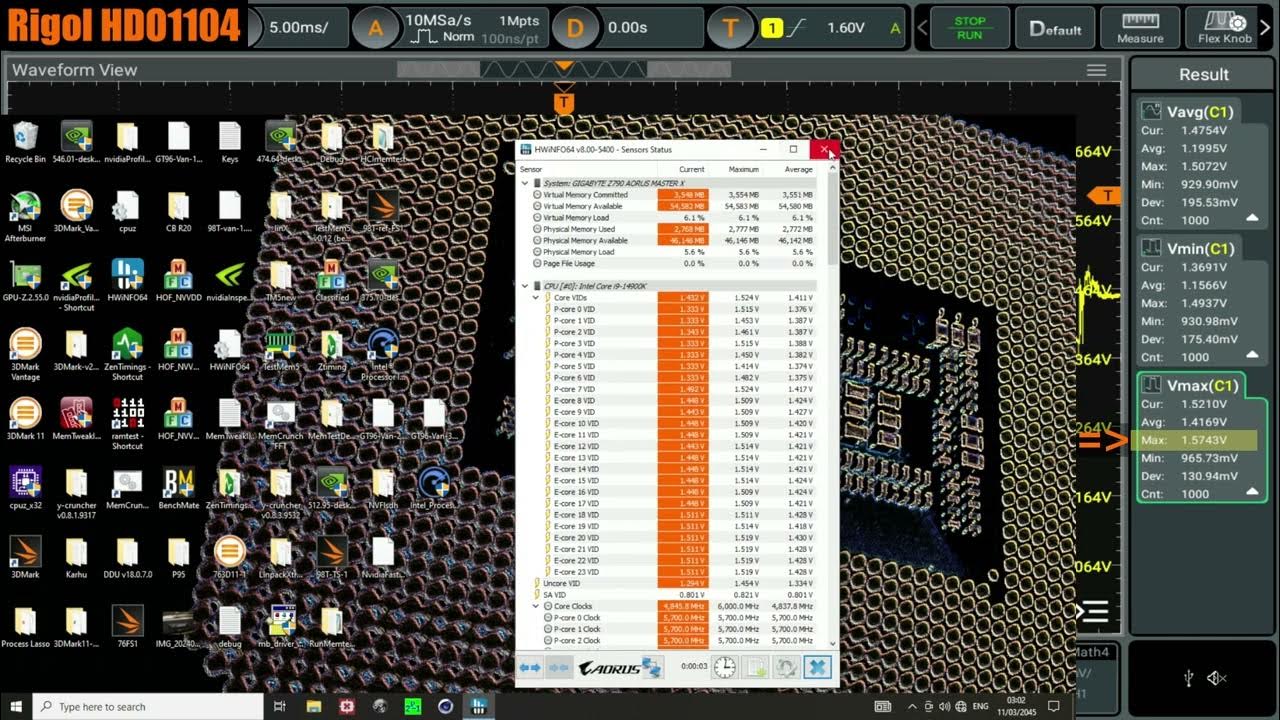Intel has a Pretty Big Problem
Summary
TLDRThe video script discusses the instability issues with Intel's 13900 K and 14900 K processors, suggesting a deeper problem than just motherboard voltage and clock settings. The speaker investigates game telemetry and crash databases, revealing a significant number of decompression errors and IO issues specifically with these Intel chips. The analysis implies that the problem might not be fully resolved by a microcode update, and raises concerns about Intel's messaging to customers and system integrators regarding the CPU's reliability.
Takeaways
- 🤔 Intel's 13900 K and 14900 K processors are experiencing instability issues, with users reporting intermittent problems that are difficult to troubleshoot.
- 🕵️♂️ The speaker conducted an 'armchair diagnostic' using game telemetry data from two different game companies to investigate the nature of these crashes.
- 📊 A significant number of crashes were attributed to decompression errors, which are unusually high for Intel's 13th and 14th generation CPUs, suggesting a potential hardware issue.
- 📈 The crash rate seems to increase over time for the problematic CPUs, indicating a possible degradation or cumulative error effect.
- 💻 Data from game servers using Intel's 13900 K and 14900 K CPUs revealed similar stability issues, even on more conservative W680 chipset motherboards.
- 💾 The speaker found that IO errors were also disproportionately high for the affected Intel CPUs, suggesting a broader range of hardware issues.
- 🛠 BIOS updates and adjustments, including disabling ecores and reducing memory speed, were attempted as fixes but did not fully resolve the issues.
- 💡 The possibility of a power or voltage issue within the CPUs is suggested, as the problems persist even on motherboards designed for stability.
- 📉 Intel's messaging to customers and system integrators appears to be inconsistent, with some reports indicating a 10-25% failure rate for the CPUs.
- 🔄 The data center provider is charging a premium for support on Intel systems due to the high number of incidents requiring intervention.
- 🚫 The lack of clear communication from Intel and the ongoing uncertainty about the root cause of the issues are causing frustration among gamers and enthusiasts.
Q & A
What is the main issue discussed in the video script regarding Intel's 13900 K and 14900 K processors?
-The main issue discussed is the instability of Intel's 13900 K and 14900 K processors, which has been ongoing for months and is suspected to be more than just a simple motherboard voltage or clock problem.
What does the speaker believe might be the deeper issue with Intel's chips based on their investigation?
-The speaker suggests that there might be a deeper hardware issue with the chips themselves, as opposed to just a software or microcode issue, based on the high number of crashes and errors reported.
How does the speaker obtain data for their analysis?
-The speaker obtains data by accessing crash databases from two different game developers who provided them with information on system configurations, play times, and crash rates.
What is the significance of the 'out of VRAM' error mentioned in the script?
-The 'out of VRAM' error is significant because it is a common error reported with Intel CPUs that have the instability problem, even when the system is not actually out of VRAM, indicating a potential hardware issue.
What does the speaker find when analyzing decompression errors in game databases?
-The speaker finds that there are 1,584 decompression errors logged in the past 90 days, with 1,431 of those being related to Intel's 13th or 14th generation CPUs, which is a disproportionately high number compared to other CPUs.
Why does the speaker believe that the issue might not be fully resolved even with a BIOS update or disabling ecores?
-The speaker believes this because the error rates and instability issues persist even in more conservatively configured systems, such as those using the W680 chipset in data centers, which suggests a deeper hardware problem.
What is the implication of the speaker's findings for game developers and data center providers?
-The implication is that game developers and data center providers may experience higher support costs and system instability, leading some to consider alternative CPU options like AMD's 7950 X for new server deployments.
What is the speaker's view on Intel's messaging to customers regarding the CPU issues?
-The speaker criticizes Intel for not providing clear and concise messaging to customers, especially enthusiasts who are experiencing issues, and suggests that Intel should offer replacements for affected CPUs.
What steps did the speaker take to ensure the systems were configured correctly for testing?
-The speaker updated the BIOS to the latest versions as of June 25th, 2024, and tested various configurations, including different DDR5 speeds and multipliers, to find the most stable settings.
What unusual phenomenon did the speaker observe in some systems prior to a hard crash?
-The speaker observed that in some systems, the CPU would become unexplainably slow for up to a minute before a hard crash, with no clear correlation to thermal monitoring or power issues.
Outlines

此内容仅限付费用户访问。 请升级后访问。
立即升级Mindmap

此内容仅限付费用户访问。 请升级后访问。
立即升级Keywords

此内容仅限付费用户访问。 请升级后访问。
立即升级Highlights

此内容仅限付费用户访问。 请升级后访问。
立即升级Transcripts

此内容仅限付费用户访问。 请升级后访问。
立即升级浏览更多相关视频

Intel's CPU Crashes Explained

Turning off "Intel Default Settings" with Microcode 0x129 DISABLES THE VID/VCORE LIMIT

Decoding Intel's Confusing Processor Names: Core i3, i5, i7, i9 Explained!

AMD Ryzen 9 9950X CPU Review & Benchmarks vs. 7950X, 9700X, 14900K, & More

Intel 13900K & 13600K Temperature Myths BUSTED

INTEL Sedang Tidak Baik, Begini Rangkuman Ceritanya....
5.0 / 5 (0 votes)
